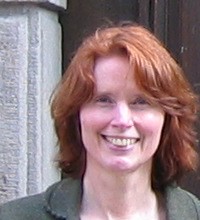Wednesday, October 27, 2010
The real date for turning in revised Essay 1 or 2
Monday, October 25, 2010
Essay 3
Who are the Shaggs?
Saturday, October 23, 2010
National Day of Writing
For Monday,
Read: Orlean, 52
Tuesday, October 19, 2010
Reasonable Lies, Unacceptable Lies, and CNF
- lies about himself/his identity (posing as a classic "hero-rebel");
- lies that affected/represented other real people;
- what we called "lies of principle" that went beyond lying about a particular person or group - and moved to represent "the way things are" based on Frey's (false) experiences;
- and "meta-lies" or lies about the truth, source, basis of his writing
Wednesday, October 13, 2010
Wednesday, October 13: Rehearsal
We have scheduled readings to last about 10 minutes. You should divide up your time to include your introduction + background, the reading - and any discussion you might hope to facilitate.
1. Chelsea, Josh, Casey, Marilyn
2. Marjorie, Hamilton, Yasmin, Fran
3. Nashira, Michael, Erin,
4. Ashley, Eric, Robyn, Elizabeth
Over the weekend:
I will be reading blogs and providing comments.
For Monday:
At this point I have conferenced with everyone (except Marjorie- who I will be in touch with) and hopefully you have some ideas about where to go with your first piece, as well as some ideas about what to do for your second piece. Make some notes & do some thinking - but I am recommending that you let the first piece simmer - and get started on the second piece.
In class on Monday we will talk about TRUTH.
Read: Smoking gun expose of A Million Little Pieces (if you haven't read it already)
http://www.thesmokinggun.com/documents/celebrity/million-little-lies
and the Winfrey backlash
Blog 9: Brainstorming for Essay 2
Have a good rehearsal and see you on Monday.
Thursday, October 7, 2010
October 6: National Day of Writing, Emotions and Truth
Tuesday, October 5, 2010
Conferences + Class October 13 + Day of Writing
9:40 Erin
11:40 Chelsea
12:40 Nashira
4:40 Hamiton
